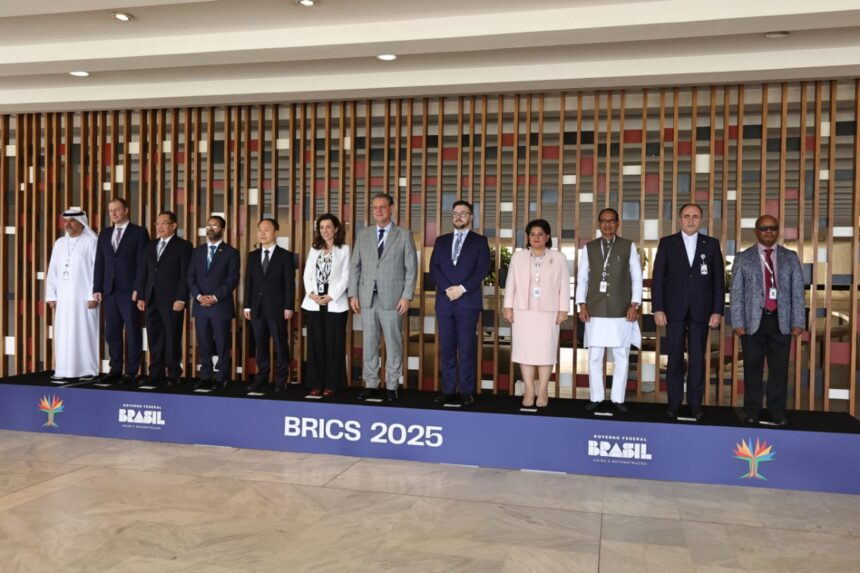NewzVille Desk
India reaffirmed its commitment to inclusive, equitable, and sustainable agriculture, at the 15th meeting of BRICS Agriculture Ministers.
Union Agriculture Minister Shivraj Singh Chouhan emphasized the need to place the welfare of small and marginal farmers at the centre of global agricultural strategies and clarified that agriculture, for India, is not merely an economic activity, but a source of livelihood, food, and dignity for millions of families.
He underscored that global food security and rural development goals would remain incomplete unless small farmers are protected and empowered.
Chouhan highlighted that the world’s 510 million smallholder farmers are the backbone of the global food system and are also the most vulnerable in the face of climate change, price volatility, and resource scarcity.
Minister Chouhan stated that we cannot leave smallholders to fight these challenges alone; they need our policy support. He presented cluster-based farming, Farmer Producer Organizations (FPOs), cooperative models, and natural farming as effective approaches for the collective empowerment of small farmers and improving their market access.
The meeting focused on the need to make agricultural trade fair, control global price volatility, and ensure remunerative prices for small farmers. He reiterated the importance of public food stockholding systems, minimum support prices (MSP), and value chains that connect smallholders directly to consumers. Shri Chouhan cited India’s food storage and distribution capacity during the COVID-19 crisis as a case in point, through which free rations were distributed to over 800 million people.
Shivraj Singh Chouhan shared India’s technological initiatives – Digital Agriculture Mission, AgriStack, drone technology, and Climate-Resilient Villages – and explained how these innovations have significantly improved service delivery, transparency and farmer incomes.
Union Minister Chouhan also mentioned initiatives like Lakhpati Didi and Drone Didi as examples of India’s commitment to the social and economic empowerment of rural women, stating, “For India, empowering women socially, economically, and politically is a mission.”
The BRICS Agriculture Ministers launched the “BRICS Land Restoration Partnership” toaddress land degradation, desertification, and soil fertility loss.
In the Joint Declaration, BRICS nations collectively reiterated their resolve to make the global agri-food system fair, inclusive, innovative, and sustainable. The declaration emphasized commitments to food security, climate adaptation, empowerment of women and youth, sustainable fisheries and livestock development, soil and land restoration, digital agriculture certification, and promotion of financial and trade mechanisms for the agricultural economies of the Global South.
The formal announcement of the BRICS Land Restoration Partnership further reinforced the group’s collective commitment to halting land degradation and desertification.






